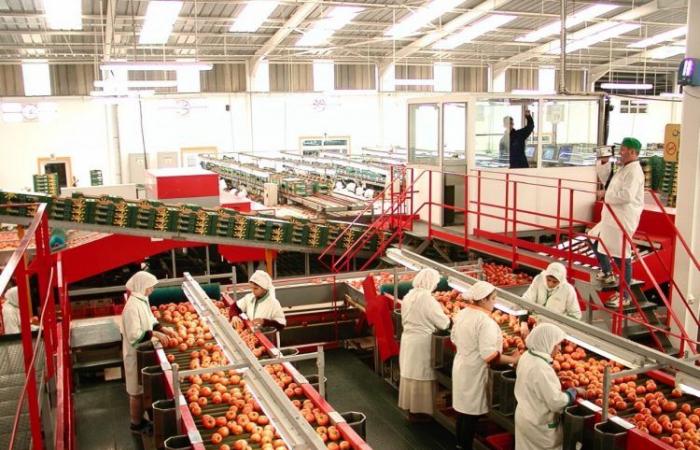The European Union remains Morocco’s leading trading partner, representing a significant share of its exports. According to data from the Foreign Exchange Office, Moroccan exports to Europe reached 308.72 billion dirhams in 2023, with a strong presence of agricultural products, including tomatoes, which play an essential role in the supply of the European Union in fresh fruit and vegetables.
The European Union (EU) remains the Kingdom’s main trading partner, absorbing a large share of its exports, with Spain in the lead, which stands out as the largest European market for Moroccan products. In 2023, Moroccan exports to the EU reached a total of 308.72 billion dirhams, illustrating the strategic importance of this trade relationship. Moroccan products that dominate these exports include automobiles, cables, clothing and agricultural products, while Moroccan imports from the EU mainly concern automobile parts, wheat and various types of engines.
A notable share of Moroccan exports to the EU consists of agricultural products, including fruits and vegetables. According to media reports, in 2021, these exports exceeded 2.5 million tonnes, generating revenues estimated at more than 2 billion euros. Among these products, tomatoes occupy a preponderant place, alongside citrus fruits, strawberries and olives, which are among the flagship products exported to Europe. In fact, around 30% of tomatoes consumed in Europe out of season come from Morocco.
Read also: Morocco establishes an anti-dumping system on canned Egyptian tomatoes
The European Commission’s report on agricultural forecasts for the period 2024-2035 forecasts a slight increase in tomato imports into Europe, estimated at 0.6% per year, to reach 822,000 tonnes by 2035. This growth is fueled by sustained demand, particularly for small varieties and cherry tomatoes, which are experiencing growing popularity among European consumers. At the same time, tomato production in the EU is expected to decline by 0.3% per year, particularly due to lower winter production. This represents an opportunity for Moroccan exporters, in particular, to fill this gap and meet the increased demand for fresh tomatoes in Europe.
In 2024, Morocco recorded exceptional performance in the global tomato market, with exports reaching 424,000 tonnes between January and July. This 16% increase compared to the average of the last five years demonstrates the resilience of the Moroccan sector, which was able to cope with difficult summer weather conditions. A large part of these exports went to the European Union, in particular to France, but also to Eastern European countries, such as Poland, where imports of Moroccan tomatoes have increased sharply.
Morocco, with its production of high quality cherry tomatoes, is now a key player not only in Western Europe, but also in Central Europe and in emerging markets. This dynamic demonstrates Morocco’s ability to diversify its markets and adapt to the demands of European consumers, particularly in terms of quality and regularity of deliveries.






